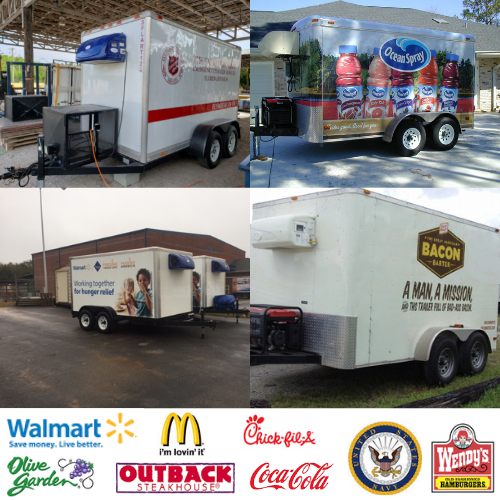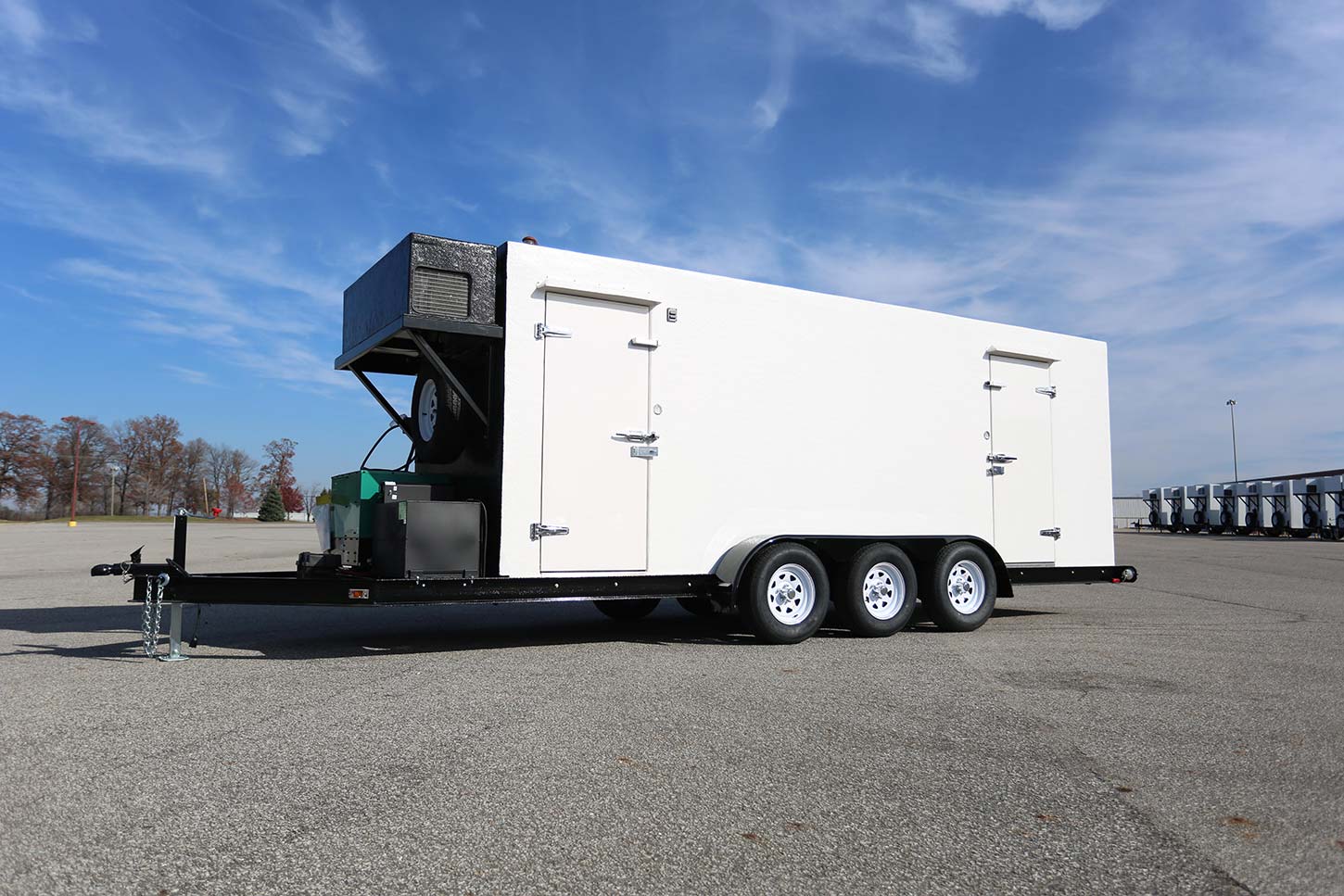Cooling Solutions on Wheels: Small Refrigerated Trailer-Cooler Trailers
Cooling Solutions on Wheels: Small Refrigerated Trailer-Cooler Trailers
Blog Article
The Ultimate Overview to Picking the very best Chilled Trailers
When it comes to selecting the excellent chilled trailer for your service requirements, various variables should be very carefully considered to make sure optimum efficiency and efficiency. From the various types of refrigerated trailers available to the key features such as dimension, temperature control, and power effectiveness, each element plays a vital function in establishing the ideal fit for your particular requirements.
Sorts Of Refrigerated Trailers

When taking into consideration the kinds of refrigerated trailers, it is necessary to evaluate their certain attributes and abilities to match the transportation requirements of perishable items. The 2 key sorts of cooled trailers are reefer trailers and shielded trailers. Reefer trailers, short for refrigerated trailers, are geared up with cooling systems that proactively manage the interior temperature level to keep disposable items at the required conditions during transport. These trailers are perfect for products like fresh produce, dairy products, meat, and drugs that need exact temperature control - small refrigerated trailer- cooler trailers.

Size Considerations
Thinking about the measurements of the chilled trailer is important to make certain ideal storage ability and efficient transport of disposable items. When choosing the dimension of a refrigerated trailer, it is crucial to think about the quantity of items that need to be delivered. Larger trailers use more storage area, making them ideal for services with significant shipping demands. However, smaller sized trailers are more manoeuvrable and economical for businesses with lesser tons or minimal storage space at their facilities.
When identifying the size of the chilled trailer is the dimensions of the items being carried,Another variable to consider. Some goods might have specific dimension requirements or require to be piled in a specific way to avoid damages. Selecting a trailer dimension that suits the dimensions of the items will aid keep their quality throughout transportation.

Temperature Control Functions
Effective administration of temperature level control in refrigerated trailers is critical for protecting the high quality and safety and security of perishable items throughout transportation. When choosing a chilled trailer, it is necessary to consider the temperature control includes it uses.
Additionally, some refrigerated trailers come with multi-zone temperature level control abilities, permitting different areas to maintain varying temperature levels as required for different types of items. When transporting a mix of disposable products with distinctive temperature demands, this attribute is especially useful. Additionally, trailers with reliable insulation and temperature find more level harmony throughout the freight space help prevent warm or cold areas, making certain regular problems for all products being transported
Power Effectiveness Variables
An essential aspect to examine when picking a chilled trailer is its energy efficiency, which plays a substantial duty in lowering operational costs and environmental impact. Energy effectiveness factors to think about consist of the insulation top quality of the trailer, the sort of refrigeration system made use of, and any kind of additional functions that add to reducing energy intake. Premium insulation is critical as it helps preserve the preferred temperature inside the trailer with minimal power loss. Modern refrigeration systems, such as those using innovative innovation like electric standby options or solar energy, can also enhance energy efficiency. Additionally, attributes like automated defrost cycles, temperature tracking systems, and reliable air movement layout can even more maximize power usage. By prioritizing energy-efficient cooled trailers, businesses can not only save money on overhead however additionally reduce their carbon impact, making a positive contribution to sustainability initiatives in the transportation industry.
Upkeep and Service Tips
Offered the vital role of energy effectiveness in lowering functional expenses, it is crucial to develop an aggressive upkeep and solution routine for refrigerated trailers to make sure optimal performance and durability. Routinely keeping the trailer and evaluating's refrigeration unit is essential. This consists of checking the gaskets for any wear and tear, making certain appropriate insulation, and cleaning the condenser and evaporator coils. Checking temperature degrees and adjusting the thermostat periodically can aid stop temperature variations that may endanger the high quality of the transported goods. Furthermore, inspecting the trailer's tires, brakes, lights, and electrical systems is necessary to guarantee trustworthy and secure operation. Working together with a trustworthy provider for routine maintenance checks and dealing with any concerns without delay can significantly extend the life-span of the chilled trailer. Applying a comprehensive maintenance routine and maintaining comprehensive documents of all service and repair services conducted can aid in determining patterns, optimizing performance, and decreasing unanticipated failures. moved here

Final Thought
In verdict, selecting the most effective cooled trailer entails considering different variables such as the sort of trailer, size demands, temperature level have a peek at these guys control features, power performance, and upkeep needs. By examining these aspects very carefully, businesses can ensure they pick a refrigerated trailer that satisfies their details needs and demands, inevitably leading to much more reliable transport and storage space of temperature-sensitive goods.
The two primary kinds of refrigerated trailers are reefer trailers and insulated trailers (small refrigerated trailer- cooler trailers). Reefer trailers, short for cooled trailers, are outfitted with cooling systems that actively control the interior temperature level to maintain perishable products at the needed problems throughout transportation.On the other hand, insulated trailers are created to preserve the temperature level of the items making use of the insulation homes of the trailer wall surfaces. While they do not have energetic air conditioning systems like reefer trailers, shielded trailers are appropriate for products that require security from outside temperature level variants however do not need as rigorous temperature level control as disposable items.Effective administration of temperature level control in cooled trailers is vital for protecting the quality and safety and security of subject to spoiling items throughout transport
Report this page